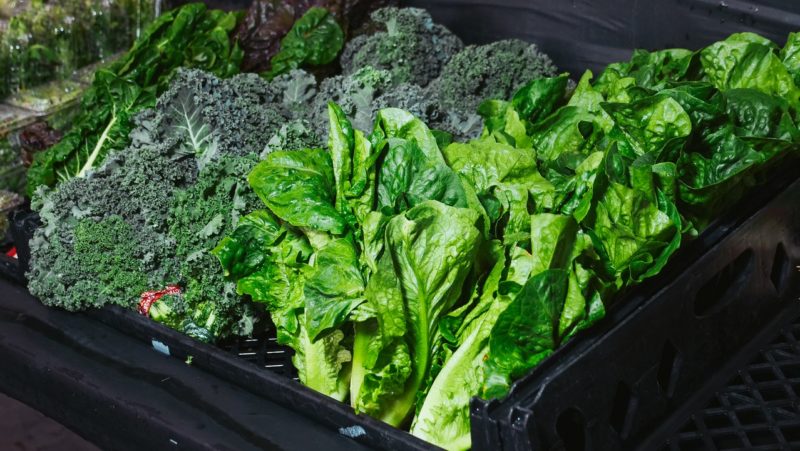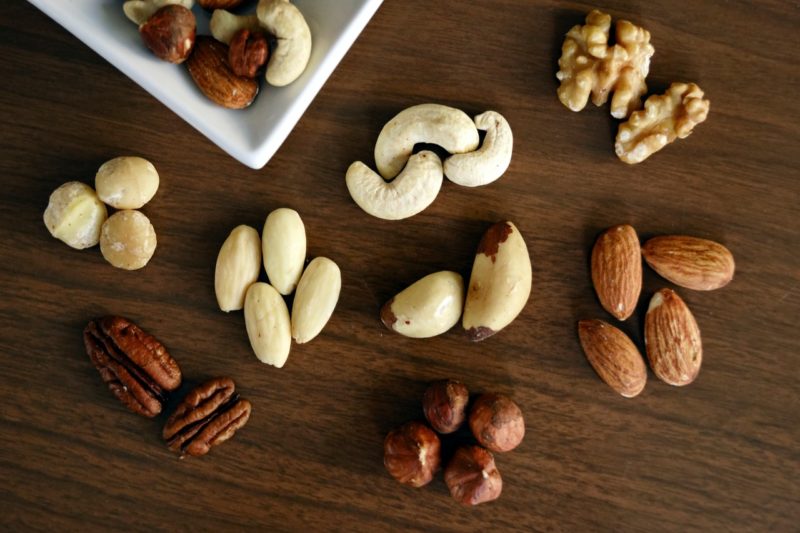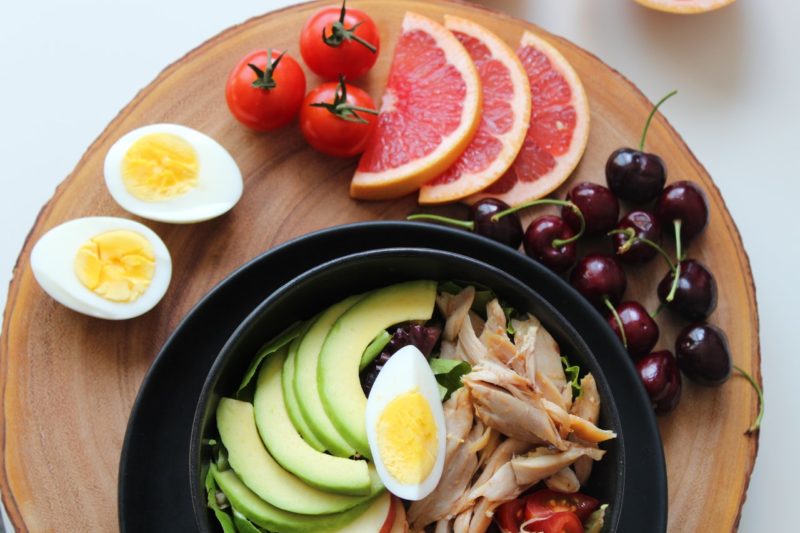November 2021 Support your Immune System through a Healthy and Balanced Diet
By Jia Ning Koh
Have you ever wondered how nutrition plays a role in your immune system? Maintaining a healthy and balanced diet is one way to help prevent against bacteria, viral, and other infections. Now, let’s take a look under the nutrition microscope to see how macronutrients and micronutrients function in the world of your immune system.
Nutrition supports immunity through multiple mechanisms. All cells in the body require energy from food, and immune cells are no exception. One of the best ways to support your immune system is to eat enough. In order to make and support immune cells, your body needs energy, which comes from the food and drinks you put in your body. In addition to fueling immune cells, the different macronutrients and micronutrients offer support on many other levels:
- Work as antioxidants
- Produce antibodies
- Provide structure for immune cells
- Promote growth and activity of immune cells
- Produce white blood cells
- Regulate immune cells responses
- Lower oxidative stress and reduce inflammation
- Synthesis of immune cell DNA and protein
- Repair damaged cells and tissue
Different nutrients play different roles in supporting immune health, so there are no “super foods” that can do it all. However, there are certainly some foods that are rich in immune-supporting nutrients. Let’s take a look!
Vitamin C works as an antioxidant + promotes growth and activity of immune cells

- Orange, grapefruit, strawberry, papaya, kiwi, mango, guava, black currant, lemon, lychee, American persimmon, star fruit, acerola cherry
- Spinach, kale, bell pepper, tomato, broccoli, Brussels sprouts, snow peas, green chili, kohlrabi, parsley, bitter melon, garden cress, jalapeno pepper, butternut squash, russet potato, artichoke
- Coconut water, coconut milk, coconut meat
- Chestnuts, beechnuts, ginkgo nuts, hazelnuts, pistachios, pine nuts, black walnuts, macadamia nuts, pecans, brazil nuts, pili nuts
- Chia seeds, pumpkin and squash seeds, sunflower seeds, flax seeds, hemp seeds
Folate/Folic Acid produces antibodies + synthesis of immune cell DNA and protein
- Enriched pasta, bread, rice
- Legumes, beans
- Spinach, kale, arugula, asparagus, turnip greens, romaine lettuce, Brussels sprouts, broccoli, beets
- Orange, grapefruit, lemon, lime, papaya, banana, avocado
- Peanuts, sunflower seeds
- Eggs
- Wheat germ

Vitamin A works as an antioxidant + produces white blood cells + regulates immune cell responses
- Carrot, bell pepper, artichoke
- Sweet potato, pumpkin, squash, russet potato
- Spinach, kale, cooked collards, cooked turnip green, chard, lettuce
- Mango, papaya, apricot, cantaloupe, red grapes, watermelon, tangerine, nectarine, guava, passion fruit
- Beef, lamb, goose liver
- Bluefin tuna, trout
- Goat, limburger, cheddar, blue, and feta cheeses
Protein promotes growth and activity of immune cells + repairs damaged cells and tissue + formation of antibodies
- Meat and poultry
- Fish and seafood
- Eggs and dairy products
- Beans
- Tofu
- Nuts and Seeds
Vitamin E works as an antioxidant

- Avocado
- Russet potato
- Artichoke
- Whole grains
- Nuts and seeds, including almonds, peanuts, sunflower seeds, hazelnut
Selenium promotes growth and activity of immune cells + lowers oxidative stress and inflammation
- Seafood, poultry
- Cottage cheese
- Whole grains, including whole grain breads and pasta, brown rice, barely, quinoa, rye, millet
Iron promotes growth and activity of immune cells + carries oxygen to immune cells
- Red meat, chicken, turkey
- Canned light tuna, sardines
- Clams, oysters
- Beans
- Fun fact: Vitamin C facilitates iron absorption from plant-based iron (nonheme iron)!
Zinc promotes growth and activity of immune cells
- Nuts, cashews
- Chickpeas
- Oysters and shellfish

Vitamin D provides structure for immune cells + promotes growth and activity of immune cell
- Salmon, tuna
- Vitamin D fortified orange juice, milk, tofu, yogurt, cheese
- Eggs
- Mushrooms
- Beef liver
Should I Take Supplements?
A healthy and balanced diet is the best source to obtain these immune-supporting nutrients. Supplements are not regulated by the Food and Drug Administration and supplement overdose is possible. Supplements may be appropriate for those who have medically diagnosed deficiencies or requirements that demand nutrients beyond what is feasible to obtain from diet alone.
Bottom Line
As Hippocrates, an Ancient Greek physician, said “Let food be thy medicine, thy medicine shall be thy food.” There is no medicine that can replace a healthy diet. Maintaining a healthy, balanced diet is key for supporting your immune system and preventing disease. It is important to emphasize adequacy and variety in your diet to ensure your immune system has all the nutrients it needs to stay strong.
Check out our delicious Balanced Shrimp Bowl recipe that includes several immune-supporting macronutrients and micronutrients.
Get to know our author:
Koh graduated from CSU in May 2021 with a bachelor’s degree in Food Science and Human Nutrition, and is currently doing her distance dietetic internship at Lagniappe Wellness. She plans to become a Registered Dietitian Nutritionist and hopes to work in the outpatient setting as a nutrition counselor for obesity and type 2 diabetes prevention and treatment. Here is what Koh had to say about working in the KRNC: “KRNC provides me with a great opportunity for my career path by giving me a foretaste of becoming a Registered Dietitian. My favorite parts of working in the KRNC are shadowing dietitians working with real clients, designing recipes and education materials, and teaching cooking classes.”
More Information
For additional resources for healthy eating, check out these programs from our registered dietitian nutritionists. Find delicious and healthy recipes on our Recipes page! More health tips are also available at the College of Health and Human Sciences Pinterest board. Lastly, don’t forget to sign up for the KRNC monthly newsletter!


